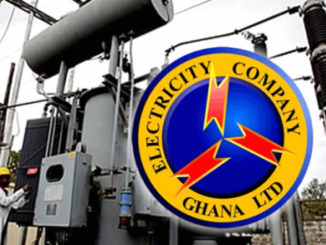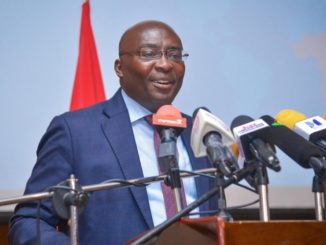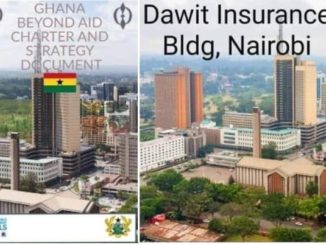The current Akufo-Addo administration has been commended for consistently adhering to the tenets of the Millennium Challenge Compact (MCC).
The MCC is ready to release $1 billion as part of a new regional programme which it describes as a ‘Christmas present’ to the country.
Ghana has benefitted from two compacts totalling almost $1 billion to mostly develop road infrastructure and undertake power sector reforms.
The Millennium Challenge Corporation (MCC) is a bilateral United States foreign aid agency established by the US Congress in 2004 to apply a new philosophy toward foreign aid.
It is independent of the State Department and USAID and signs compacts or threshold agreements with partner countries.
A compact is awarded if the country scores high on the selection criteria indicators.
If the country scores low but has a positive and upward trend on the selection criteria, it can still be eligible for a smaller grant called a threshold programme.
Each partner government is required to create a special purpose legal entity that would be accountable for implementing the compact programme.
Acting Vice President of the Millennium Challenge Corporation (MCC), Kyeh Kim, who paid a courtesy call on President Akufo-Addo at the Jubilee House yesterday, believes the Government of Ghana (GoG) is doing something right in that regard.
“You got about $1 billion of infrastructure that is waiting to be built and that will trigger the possibility of large-scale cross-border infrastructure,” she said.
That, she said, was because “Ghana has been such an outstanding partner, this is testament to the partnership and friendship that we feel between the two countries, and your leadership in pushing this process through has been absolutely instrumental.”
She announced that Ghana has been selected as one of the countries in West Africa for the Regional Compact Programme.
The programme, Ms Kim said, would be used for the construction of large-scale, cross-border infrastructural projects in West Africa.
Describing the Regional Compact Programme as a Christmas present to Ghana, Ms Kim disclosed that the MCC was recently given the legislative authority to enter into concurrent regional compacts.
“Our previous statute allowed us to enter into one compact at a time. So the new legislation that has been offered by our US Congress, as well as signed into law by our President, allows us to enter into this (regional compact),” she said.
Ms Kim continued, “What we are exploring, in the case of Ghana with its neighbours, is potential for large-scale cross-border infrastructure. The other countries that were selected in this pool of countries include neighbours such as Burkina Faso, Cote d’Ivoire, Benin and Niger.”
She indicated that “there are opportunities with your neighbours, especially with Burkina Faso and Cote d’Ivoire that we can explore. We have already started having preliminary discussions on energy-focused cross-border infrastructure, as well as transport.”
The acting MCC Vice President indicated that the beneficiary countries can take advantage of the various projects to be undertaken.
With Cabinet approving the Electricity Company of Ghana (ECG) Concession programme, she added that the selection of Ghana in the Regional Compact Programme is a “big reward.”
Touching on the ECG Concession Programme, Ms Kim expressed gratitude to President Akufo-Addo for his personal engagement and leadership throughout the process which ensured the release of $190 million for the Compact.
“In every instance, your leadership has pushed this Compact to make progress and made tough decisions for the benefit of the electricity sector, and hopefully to avoid future ‘dumsor,” she added.
President Akufo-Addo, on his part, thanked the MCC for including Ghana in the Regional Compact Programme, describing it as “very good news.”
“The opportunities from the programme will be of immense benefit to Ghana, and I am a strong, fervent believer in the prospects of ECOWAS, and of the regional market that ECOWAS potentially represents,” he added.
–
Daily Guide




